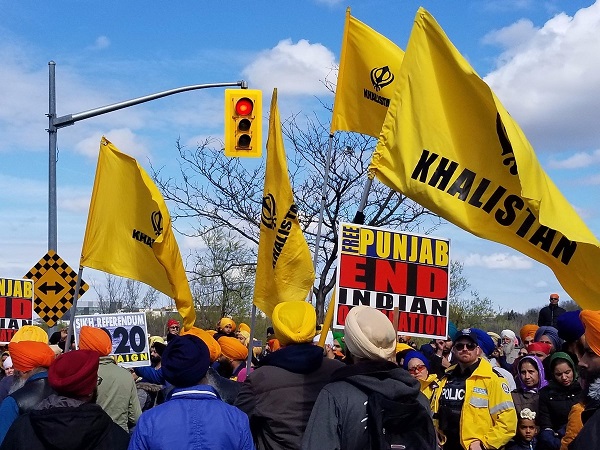New Delhi, (Samajweekly) Although it describes itself as a “human rights organisation,” SFJ’s firehose of publicity shows no glimmer of interest in the human rights of the thousands of innocents who died in Khalistani terrorist attacks during the 1980s and early 90s, wrote Terry Milewski in an article for Gateway House.
Sikhs for Justice (SFJ) is fronted by an American lawyer, Gurpatwant Singh Pannun, who is officially labelled a terrorist in India.
Prominently featured as a hero in the referendum campaign, for example, is the worst mass-murderer in Canadian history – Babbar Khalsa leader Talwinder Singh Parmar, the article said.
It was Parmar who conceived and directed the 1985 Kanishka bomb plot which destroyed Air India’s Flight 182 off the coast of Ireland – the deadliest terrorist attack anywhere until 9/11.
Parmar later fled Canada for Pakistan and was killed by police in Punjab in 1992 – so he never faced trial. But a decade of legal proceedings in Canada – including a judicial inquiry and a criminal trial of Parmar’s colleagues – confirmed that Parmar instigated and directed the bomb plot, the article said.
“None of the 331 victims had anything to do with the Khalistan struggle. Eighty of them were children. Thirty-three were Sikhs. Two were Japanese baggage handlers, killed by a second bomb which blew up on the ground as it was being transferred to another Air India flight leaving Tokyo. The plan was to destroy two planes at once, on opposite sides of the globe – meaning that the death toll, as ghastly as it was, was supposed to be much higher”, Milewski said.
“Even so, the Kanishka massacre was a catastrophe not just for the victims, who were mainly Indo-Canadians heading for vacations in India, but also for the Khalistan movement, which never recovered from the disgrace”, he added.
As per the article, nevertheless, instead of repudiating this historic crime, the Sikhs for Justice campaign seems to embrace it. In December 2019, Gurpatwant Pannun was in British Columbia to promote his referendum by announcing the opening of the “Shaheed Talwinder Singh Parmar Voter Registration Centre.” To mark the occasion, two posters showing Parmar in heroic poses were prepared and posted on the internet.
More portraits of a beaming Parmar were featured in street demonstrations at the Indian consulate in Vancouver. No explanation was offered for why Parmar was being honoured as a martyred hero, he added.
So, the glorification of Parmar was already normalised in Canada, and no controversy arose when Sikhs for Justice made him, quite literally, the poster boy for its referendum campaign.
“This reverence for a mass-murderer, though, had been a feature of the Khalistan movement ever since Parmar’s death in 1992. Various SFJ Facebook pages applaud him as a “Jathedar,” or religious leader, and show him posing with weapons at a gun market in Pakistan”, Milewski said.
Pannun also offers ominous “bounties” for information on notable enemies of the Khalistan movement, such as the military leaders of Operation Blue Star. Lt Gen Kuldip Brar, for example, has been an assassination target ever since and his throat was slashed by a Khalistani gang in 2012 during a trip to London. He survived, but remained a target, as seen in a Sikhs for Justice offer to pay handsomely for information on his movements, the article said.










